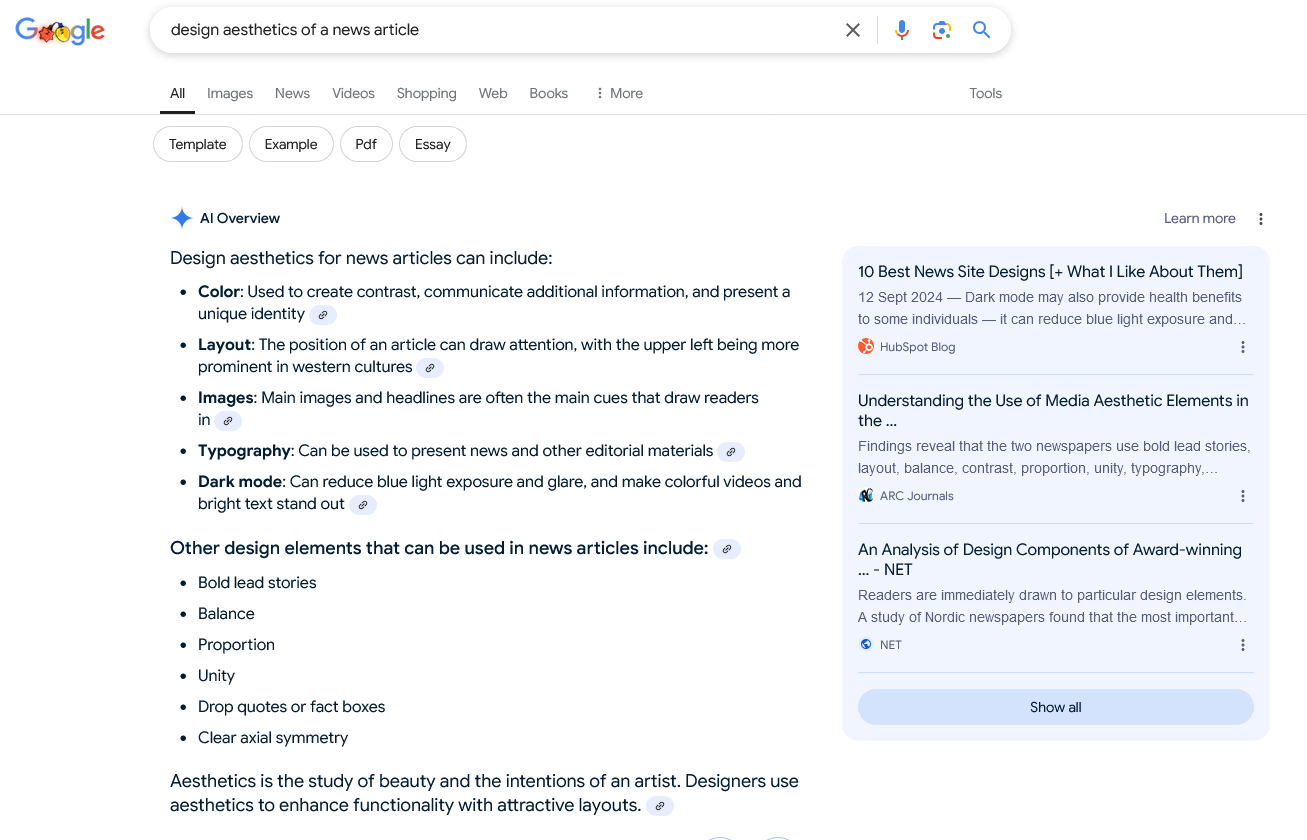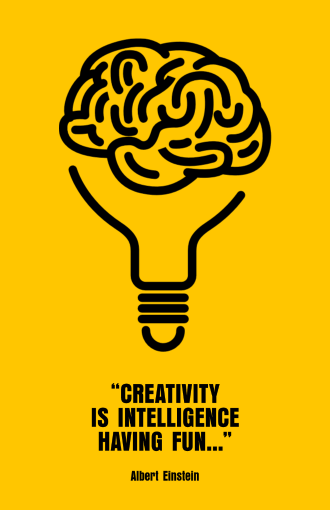Artificial Intelligence by Google

- Nov 5, 2020 modified: Oct, 08 2025
Artificial Intelligence by Google
Original article 5 Nov 2020 - Updated Jul 2025
Artificial intelligence (AI) is enhancing our lives and augmenting our abilities.
The entire AI industry is built on top of Google research discoveries that were subsequently open sourced, particularly transformers, without which the AI industry would not exist as it is today.
AI Overviews now in Australia
AI Overviews is the introduction at the top of search results of AI generated content. The good part of how Google has done this is the links to the original content are supplied on the right-hand side.(desktop)
You can do your own verification of the content. An example is you may ask "can ozone generators remove VOCs". This is a complex question, with the answers generated more likely to answer your query than ordinary search results unless there is a direct answer.
https://blog.google/intl/en-au/company-news/outreach-initiatives/ai-overviews-australia/

An example of a meaningful AI generated response to the query: design aesthetics of a news article
Source Links or Supporting Links in Ai Overview

Our article on Multi-Skilled SEO in an Ai Overview - it comes up in "source links" or "supporting links" and is the #1 Organic result
Rise in no-click results
Users can now get direct responses to their queries without ever clicking on a website in Google. This does have implications for websites. However this was a trend already happening prior to AI.
AI for Hearing Speech
It is not until you have a hearing problem, that you fully understand the issue (difficulty) of hearing in background noise.
So when Google recently announced a technology to improve speech understanding in video, many people with hearing problems recognised the similar technologies used to achieve this.
"By training the model on a large-scale collection of online videos, we are able to capture correlations between speech and visual signals such as mouth movements and facial expressions, which can then be used to separate the speech of one person in a video from another, or to separate speech from background sounds."
It appears Google has developed technologies that 'lip read' or 'utilise facial cues'. Also looking at Voice Pitch and Age is related to how hearing aids function. Signal-to distortion ratio (SDR), in dB for different spoken languages was also compared.
"As our method utilizes facial cues and mouth movements to isolate the speech, we tested whether facial hair (e.g., a moustache, beard) may obstruct those visual cues and affect the method’s performance. Our evaluations show that the quality of speech enhancement is maintained well also in the presence of facial hair."
Hearing Aids
Similar technologies are used to enhance speech in hearing aids. The largest improvement in hearing aids is in separating speech from noise.
Phonak in 2024 have introduced a hearing aid with on board AI to reduce background noise with its own dedicated chip.

AI for Google Search
Spelling in search queries
Approximately 1 in 10 queries typed into Google are spelt incorrectly. AI allows Google to make sense of wrongly spelt words, and usually calculate what is meant, to then deliver the correct search results.
We adapt and get used to this. We also change our queries to give the search engine the correct context as quickly as we can.
SEO in a blog
As a Gold Coast based SEO we recognise the value of Google appreciating a well researched article.
Otherwise SEO's would get away with just putting a bunch of keywords into a blog. It would not have to make sense, be grammatically correct or reach a logical conclusion.
Many articles are not actually written to be read, they are written to fool search engines into increasing the ranking for a site. Google AI differentiates well written articles and ranks them higher.

Google's SpamBrain
SpamBrain is Google's AI detection mechanism for spammers and low-quality websites.
"Even if you are not a spammer Google can recognise low quality content"
"Google also highly discourages using techniques commonly associated with spam or low-quality content. These include manipulative keywords, cloaking, hidden text, and too many ads."
The algorithms "learn" from your website, and it improves over time. If it finds that your site is still spammy, it'll continue to punish you.
Google used this AI based spam-prevention system for the first time December 2022.
'Google's John Mueller said that using generative AI to create blog posts and content for the purpose of getting backlinks is "almost certainly against Google's spam policies."'
Image and Video Recognition
Google uses AI to understand the content of images and video. Say there are 2 articles with similar content, the article with unique and relevant images and or video will rank higher.
Given the abundance of available text via AI systems like Chat GPT, Google will be integrating systems to identify purely copied content. One obvious technique would be to identify quality formatting of articles and relevant images and videos.
The Downside of AI
Adrienne Williams argues that 'these' [AI] systems are fuelled by millions of underpaid workers around the world, performing repetitive tasks under precarious labour conditions.
"They are striving to create autonomous systems that can one day perform all of the tasks that people can do and more, without the required salaries, benefits or other costs associated with employing humans. While this corporate executives’ utopia is far from reality, the march to attempt its realization has created a global underclass, performing what anthropologist Mary L. Gray and computational social scientist Siddharth Suri call ghost work: the downplayed human labour driving 'AI'."
NEDA Ai Chatbox
The US National Eating Disorder Association (Neda) closed its live helpline and directed people seeking help to other resources, including an Ai chatbot. The Ai bot, named Tessa was reported to be offering harmful advice.
Recovery from Eating Issues or an Eating Disorder often requires a multi-faceted approach. It is estimated 1,273 deaths occurred in 2023 (Australia) due to eating disorders. Only 30% of people seek help. The common types of eating disorders are Binge Eating Disorder (47%), Other Specified Feeding/Eating Disorders (38%). Anorexia Nervosa is attributed to 3% of diagnosed cases.
Economic factors were at play with Neda. It seems companies are too quick to use Ai to reduce costs. This can have harmful results.
refer The upside of AI
Search News Articles...
Recent Articles

Keywords no longer as visible in GSC
- Jan 12 2026
- /
- 219

Unique Web Systems Matter in a World of Sameness
- Dec 26 2025
- /
- 159

Most AI Websites Fail to Rank
- Nov 18 2025
- /
- 392

Sitemap.xml Best Practices
- Oct 14 2025
- /
- 1949

Fake Reviews on Google My Business
- Oct 07 2025
- /
- 607

Sending Emails from Code
- Sep 17 2025
- /
- 679

US Tariff Shifts Undermining eCommerce
- Sep 05 2025
- /
- 843

Small Business Success Formula
- Aug 23 2025
- /
- 621

Do Strong CTAs Help or Hurt Your Website?
- Jul 31 2025
- /
- 843

AI Crawlers vs Search Crawlers
- Jul 04 2025
- /
- 1134
View All News Articles
Categories
A Gold Coast SEO and Web Developer